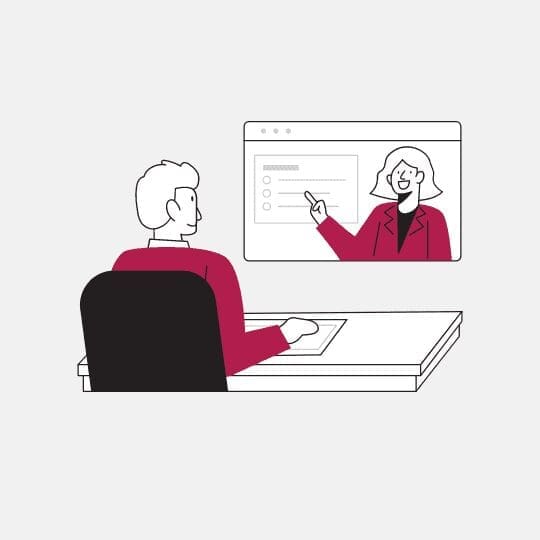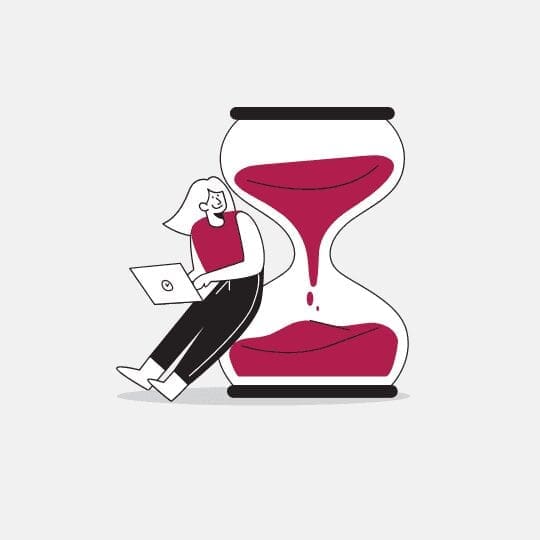2024 System Dynamics
Summer School
June 10 – July 11, 2024 | Live Online Sessions: July 8 – 11, 2024
REGISTRATIONS CLOSED
ABOUT
Held prior to the Conference, the Summer School provides a unique opportunity for Society members to learn and review the basics of System Dynamics and get exposed to real-world applications of the method. It offers you the chance to build your own simulation model with the support of some of the best instructors in the field. Seats are limited. Register by June 7th, 2024!

Online
The live Summer School sessions are held online two weeks before the conference.

Best Instructors
Learn from expert professors and practitioners with great teaching experience.

Asynchronous and Live
Watch lectures at your own speed and meet online for discussion during the live week.

Discussions
Get help from your peers and instructors in a dedicated learning platform.

Certificate
Receive a certificate of participation upon completion of the course.
Pricing
Same price for both Introductory and Intermediate Tracks.
Membership in the System Dynamics Society is required.
- $500
- $300
Introductory Track
For those with none or very limited System Dynamics knowledge
A Membership in the System Dynamics Society is required to register. Get a Membership
The Summer School is an online event.
The Introductory Track is software neutral. The purpose is to teach the System Dynamics methodology and not specific software syntax. There will be models available in Vensim, Studio, and Stella. Free versions of modeling software that are limited in capability or limited in duration of use will be available.
Instructors:
- Birgit Kopainsky, University of Bergen
- Rod MacDonald, James Madison University
- Oleg Pavlov, Worcester Polytechnic Institute
- Raafat Zaini, James Madison University
- Erica Rieder, University of North Carolina
- Larissa Calancie, Tufts University
Participants in the Introductory Summer School may attend online classes held at times that are convenient for European or American time zones. Both tracks will cover the same material. Each track will convene three times per day for 90-minute sessions. Participants are expected to attend all three sessions. The online classes will be held from Monday (July 8) to Thursday (July 11) at the following times:
|
European Track (CEST) 14:00 – 15:30 16:00 – 17:30 |
American Track (EDT) 13:00 – 14:30 15:00 – 16:30 |
Day One
Modeling Steps & Problem Definition
Modeling Feedback Mechanisms
Conceptual Modeling with Stocks and Flows
Workshop: Introduction to System Dynamics Modeling Software
Day Two
Formal Modeling of Stocks and Flows
Information Delays
Workshop: Accumulation, Feedback, and Information Delays
Applications Lecture
Day Three
Nonlinear Relationships
Policy Modeling
Model Validation
Applications Lecture
Day Four
Model Analysis
Model Use
Workshop: Common Pitfalls and Best Practices
Applications Lecture
Intermediate track
For those with basic System Dynamics knowledge and/or past Introductory Track attendees
A Membership in the System Dynamics Society is required to register. Get a Membership
The Summer School is an online event.
Attendees need to pass a placement test before registering for the intermediate track. A registration link will be sent upon a positive result. The Intermediate track focuses on software (Studio, Vensim, and Stella). It presents more advanced modeling techniques. Free versions of System Dynamics modeling software that are limited in capability or limited in duration of use will be made available.
Instructors:
- Willem Auping, TU Delft
- Bob Eberlein, isee systems
- Ying Qian, University of Shanghai for Science and Technology
Live, instructor-led online sessions of the Intermediate Summer School will be scheduled to accommodate participants from around the world. The online classes will be held from Monday (July 8) to Thursday (July 11), with sessions repeated as appropriate. The schedule will be updated based upon the preferences of participants once the Intermediate Track roster is finalized.
Day One
Steps of Modeling: Problem Description
Model Building: Stocks and Flows
Checking Results with Equilibrium Diagrams
Diagrams to Show Feedback Loops
Day Two
Simulating Nonlinear Relationships
Simulating the Flow of Information
Checking Results with Delays in the Flow of Information
Applications Lecture
Day Three
Recognizing and Avoiding Common Pitfalls
Validation Testing: For Us & Our Client
Applications Lecture
Day Four
Model Improvement
Applications Lecture
What You Get
After June 7, 2024 you will have access to:
Software Video Tutorials
You’ll get access to dozens of exclusive software tutorials. Those short videos will help you get an understanding of the tools (Stella, Studio, or Vensim). Gain more depth by visiting the vendor sites for more tutorials.
Learning Platform
The course is based on Canvas, an online learning platform. There you will find readings, models, schedules, assignments, and Q&A. You will also be able to connect to your peers via the messaging system.
Recorded Lectures
Lectures will be available for viewing one month before class sessions begin. The expectation is that students are familiar with the content of the videos and ready to discuss in class.
Online Class Sessions
Synchronous online class sessions and office hours are held during the week of Summer School to review material, go through exercises, work on problems, answer questions, and get help with individual projects.
Simulation Software
We provide you with time/feature-limited System Dynamics modeling software. Available for Mac and Windows computers.
Reachable Instructors
Our instructors have great teaching experience. They’ll be able to help you develop modeling skills. Get in touch to answer any questions you may have.
pre-work requirements
It is important that you complete your pre-work, and watch recordings and tutorials prior to the week of synchronous class sessions. This preparatory work will help you get exposure to modeling software and systems thinking. By completing the pre-work on time, you won’t fall behind during class sessions. The week of class sessions is dedicated to the discussion of topics and assignments with instructors.
We don’t expect students to learn or master the material from the videos alone or before the week of Summer School. Instead, we expect students to have watched the videos in order to become familiar with the content so that we can draw on the content during the live sessions, you can ask questions, and when we refer back to the videos, have a sense of what we are talking about. Based on previous years, if you fail to complete your pre-work, you’ll likely be falling behind and have a less satisfying experience.
There are approximately 9 hours of pre-recorded lectures to watch before the week of Summer School (not including software and System Dynamics applications videos). Adding 12 synchronous class sessions totals 20 hours of interacting online plus at least 20 hours offline to work on problems/exercises and your individual project.
Scholarships
Apply by April 15, 2024. Read the instructions below.
We offer a limited number of Summer School scholarships every year. Applications are due April 15 and recipients will be notified by May 1. Scholarship recipients must register and claim their scholarships by May 15. A Society membership is required for all participants. The cost of membership is not covered by the scholarships. Applicants need to indicate which track they will be attending. If you are intending to take the Intermediate Track please complete the assessment test before applying.
Scholarship Application Instructions:
Testimonials
What attendees say about the Summer School
This is the real deal. Complete, detailed, and didactical. The full package. Take it!
Fernando Yepez
Strategy & Transformation Director at PwC
One thing I took home is the understanding that the purpose of using System Dynamics is not to generate models but to generate solutions to problems.
Phyllis Kwenda
Ph.D. Student
It was amazing to come to this experience and be around so many people that I would never met before in my life.
Brett Jaeger
Mechanical Engineer
One of the most valuable things I found about the Summer School, as a participant, was Len’s way of laying out the approach for a System Dynamics inquiry. There are several steps and we delved into each step and learned how to do that step before going onto the next one. But knowing that we were within a whole really helped a great deal. I found exceptional value in that Summer School experience.
Rick Hubbard
This was the best class I’ve taken in years. I feel like I got a semester’s level of knowledge in just 4 days and even after the class, I’m continuing to learn and practice using the materials provided from the previous year. The instructors and course managers were incredibly generous with their time, reviewing assignments before class and staying long after the official sessions were over to answer questions. Hearing from other students from all over the world was fascinating because I got a glimpse into a variety of fields and the uses of Systems Dynamics in those fields. The class was so good I told all my peers that they should take it too.
